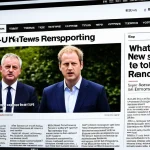How Sports Culture Shapes Community Identity in the UK
Sports culture in the UK has long been a cornerstone of community identity, deeply intertwining with social life and local traditions. From grassroots football clubs to nationally celebrated events like the FA Cup, sports provide shared experiences that foster a powerful sense of belonging. This shared passion helps forge a collective identity that transcends individual differences.
Local and national sports events act as important rituals where communities unite, rallying behind their teams or athletes. For example, match days at local football grounds become a vibrant social occasion, drawing diverse groups together in support. National events, such as the Six Nations rugby tournament, spark widespread pride and discussion, further solidifying a united community ethos.
Also read : How do UK sports initiatives promote inclusivity?
Sociocultural research supports the idea that sports participation boosts community belonging. Studies show that active involvement—whether as players, supporters, or volunteers—enhances social cohesion by creating bonds and encouraging interaction among community members. This intertwining of sports culture and community identity in the UK reflects a dynamic process where shared enthusiasm builds trust and mutual recognition, anchoring social networks and collective values.
Social Benefits and Positive Outcomes of Sports Involvement
Sports participation is a powerful catalyst for community unity, bringing together individuals from varied backgrounds and generations. By engaging in local sports clubs or teams, people find common ground that transcends age, ethnicity, and social status. This convergence creates a shared space where social relationships can flourish, enhancing both personal connections and collective solidarity.
Also read : How Do Recent Scandals Affect the Reputation of UK Sports?
Case studies across the UK highlight how involvement in sports leads to increased volunteerism and civic pride. For example, local football clubs often rely on volunteers who feel a strong attachment to their community, which strengthens social networks beyond the playing field. These clubs act as hubs of interaction where mentorship, support, and collaboration naturally emerge.
Statistical evidence further reinforces the social advantages of sports. Surveys demonstrate significant improvements in social trust and support networks among communities with active sports participation. Individuals report feeling more connected to their neighbours and more willing to offer help, showing how sports culture actively nurtures social cohesion. Such findings confirm that the benefits extend well past physical health, embedding sports deeply within the fabric of community life.
Challenges and Barriers in Using Sports to Unify Communities
While sports culture UK often promotes unity, several important barriers to unity persist. One major challenge lies in exclusivity and rivalry within certain sports contexts. Intense competition between teams or fan bases can sometimes escalate into hostility, undermining the very social cohesion these events aim to build. This can create divisions along local, ethnic, or class lines rather than fostering a collective community identity.
Economic and social inequalities also play a critical role in limiting access to sports opportunities. Participation in organised sports often requires financial resources for equipment, travel, or fees, which can exclude lower-income groups. These disparities restrict who benefits from the positive social aspects of sports participation, impeding broad community unity. For example, deprived areas may have fewer well-maintained facilities or fewer local clubs, reducing chances for engagement regardless of interest or talent.
Experts emphasize that addressing these challenges requires deliberate strategies to promote inclusion in sports. Policies focusing on subsidised programs, outreach initiatives, and anti-discrimination measures are key to breaking down economic and social barriers. Moreover, fostering environments where respect and cooperation are prioritised within competitive sports helps curb negative impacts like rivalry or exclusion.
Understanding and managing these challenges ensures that sports culture UK can more effectively serve as a foundation for wider social cohesion and a truly inclusive community identity.
How Sports Culture Shapes Community Identity in the UK
Sports culture UK stands as a foundational pillar in community life, weaving deep connections between individuals and their shared environments. This cultural fabric is not merely about athletic competition; it is a vital medium through which community identity is constructed and expressed. For instance, local football matches often transcend sport, serving as communal rituals where neighbourhoods unite in celebration and collective pride. Similarly, national events like the FA Cup final or the Six Nations rugby tournament galvanise audiences across diverse regions, amplifying a shared sense of belonging that reinforces social ties.
Sociocultural research consistently highlights how active sports participation nurtures social cohesion within communities. Beyond the spectacle of games, individuals engaging as players, supporters, or volunteers experience enhanced feelings of inclusion and mutual respect. These interactions cultivate trust and build social networks essential for communal resilience. The reciprocity found in shared cheers, joint challenges, and communal celebrations acts as a glue that binds individuals into coherent social groups.
Moreover, the repetitive nature of sporting events creates enduring symbols of identity, as communities rally around teams that embody local heritage and values. This repeated collective experience empowers communities, giving them a common narrative and visible markers of unity. Hence, sports culture UK functions as a dynamic catalyst, continuously shaping and reinforcing the community identity through sustained social interaction and shared enthusiasm.
How Sports Culture Shapes Community Identity in the UK
Sports culture UK acts as a vital cornerstone in forming and expressing community identity. This relationship goes beyond mere entertainment, embedding itself as a foundational element in social structures. Local sporting events, such as grassroots football matches, function as communal gatherings that encapsulate local pride and shared history. These occasions create rituals where community members interact, strengthening bonds through collective support and participation.
On a national scale, high-profile events like the Six Nations rugby tournament and the FA Cup final unite diverse populations under a common banner. Such events cultivate widespread enthusiasm contributing to a collective narrative that reinforces social cohesion across regions. The repeated nature of these sporting fixtures embeds symbols and stories into community consciousness, which aids in maintaining a resilient social fabric.
Sociocultural research underscores the connection between active sports culture UK participation and enhanced feelings of belonging. Studies show that individuals involved in sports—as players, fans, or volunteers—experience more robust social networks and inter-personal trust. These findings confirm that engagement in sports fosters a reciprocal environment conducive to building community identity and sustaining lasting social cohesion within UK communities.







